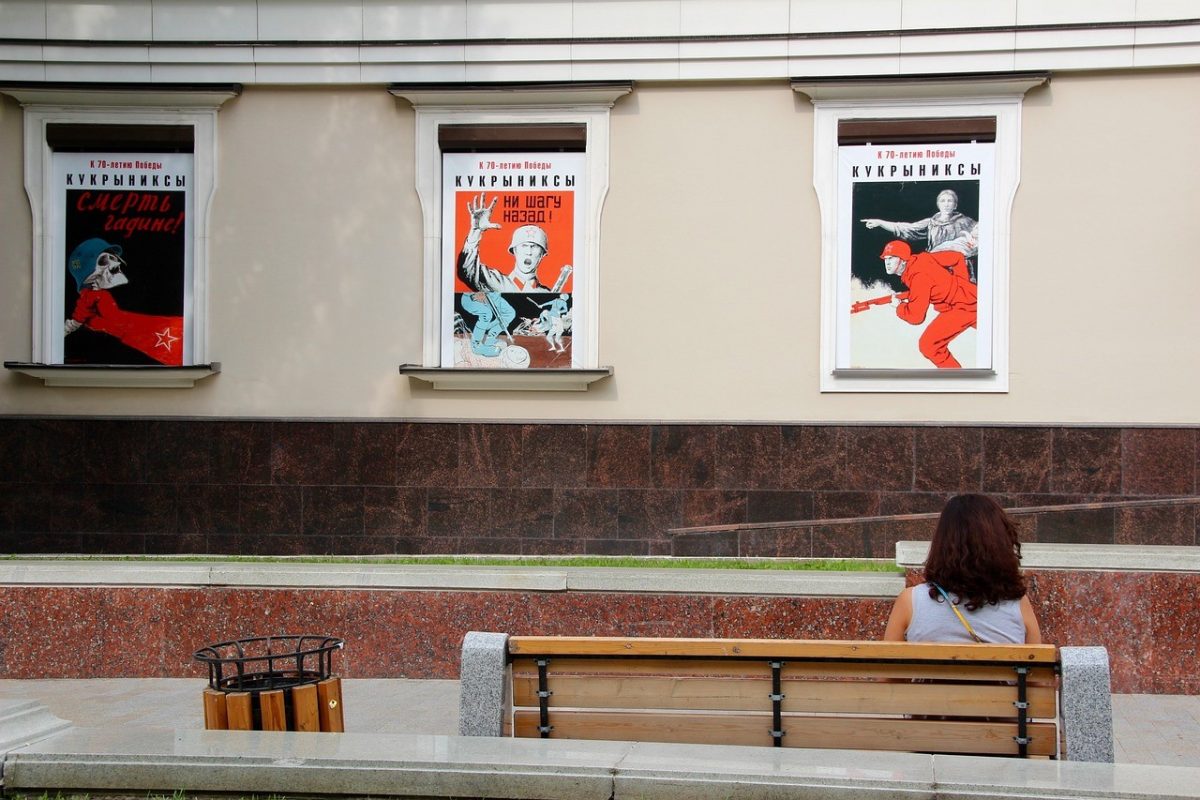In the earliest recorded histories of man, the word propaganda was a neutral term used to refer to “human activity,” in general. Later, in its Latin form, the word evolved to mean “to spread.” By the 20th century, the English form of the word became associated with a negative approach to communication using manipulation to promote certain opinions or ideologies, or to persuade an audience by producing an emotional rather than rational response to information. Today’s Russian propaganda machine is developing such campaigns not only to spread misinformation but using malicious tactics to create an illusory reality. Putin’s bureaucrats are not providing “information support” or developing “strategic communications,” the ground truth is that Moscow is using its so-called “think tanks” to justify Russian actions in Ukraine and elsewhere.
The Valdai Discussion Club, Foreign Policy Research Foundation, and the Russian International Affairs Council, among others, are part of a complex web of propagandist organizations that unlike Western think tanks are tasked with rationalizing Putin’s irrational policies. Ksenia Kirillova, of the Jamestown Foundation, says these centers are often “more dangerous than ordinary propaganda” as they “do not simply take their words from the pages of the Kremlin’s ‘manual’ but create their own theories and ideological principles that then form the basis for Russian policy and serve as further justifications for aggression.”
In a 35-minute-long YouTube video posted June 24, a Belarusian “think tank analyst,” closely linked to Russia, accused the United States of trying to hold back the development of Russia and the rest of the world. This supports the first of three Russian postulates, according to Kirillova, that the US is responsible for instigating the war in Ukraine. It is a dangerous ideological narrative employed by Kremlin authorities to suggest that Washington is losing influence over the world to Moscow, but if Washington does succeed other countries will be too frightened to “stand up to the hegemon.”
As early as May 1, 2022, the Russian publication Global Affairs reported that the Kremlin accused the West saying it “consciously provoked Moscow to adopt a military solution.” This misinformation campaign continued and evolved to openly accuse the West of “attacking” Russia. Kirillova points out that the logical consequence of this postulate is that “support for Ukraine is beneficial only to the United States, but not to Europe, which ‘will not fight with Russia for the sake of the US.’” This line is part of mainstream Russian propaganda echoed by the country’s top officials, including Russian State Duma Chairman Yvacheslav Volodin. Last December he announced on Duma TV that “the United States is trying with all its might to hold back the development of other states in order to preserve its hegemony.”
Sergei Naryshkin, head of Russian foreign intelligence, repeats the narrative regularly in speeches citing how international tensions are caused by “the stubborn resistance of the West, led by the US, to come to grips with the loss of its role as world hegemon.” In June he accused American and British intelligence services of making “greater Eurasia… a priority target for attacks….”
The second postulate Kirillova offers, points to Russian accusations that Western policy is neo-colonial and directed as much against Moscow as the rest of the world. According to Russian ideologues in the publication Global Affairs, the Kremlin today is “at the forefront of this struggle and is a sort of icebreaker that finishes off the residual ice of the neo-colonial system of Western domination.”
Sergei Lavrov, Russia’s Foreign Minister, often proclaims that “the military operation of Russia in Ukraine contributes to freeing the world from the neo-colonial yoke of the West.” On June 16 Putin joined in the campaign saying that “the monstrous neo-colonial system has ceased to exist.”
According to Kirillov, the third postulate argues that, for Moscow, the war in Ukraine is supposedly existential, “where the existence of Russia is at stake.” A Russian YouTube video in late June said for the West, it is only essential to derive maximum benefit from the war, after which it will seek other ways to achieve this goal. It is a battle between ground truth and illusory reality, one that has Putin believing his own propaganda, when Russian officials declare the world is “unconditionally” on Moscow’s side, that Europe is about to negotiate with Russia in an escape from the “dictates of the US.” Kirillov argues that this credo “convinces the Kremlin to continue its aggression believing in the inevitability of victory, which renders the Putin regime incapable of negotiations.” Misinformation and propaganda believed by those creating it may be the most dangerous Russian campaign to date.
Daria Novak served in the U.S. State Department
Illustration: Pixabay
